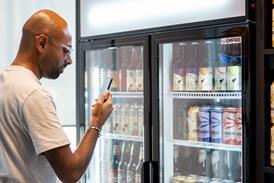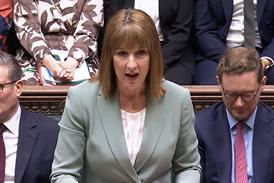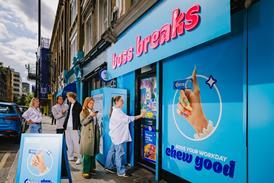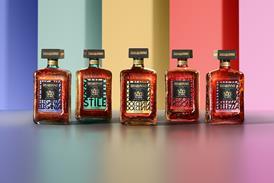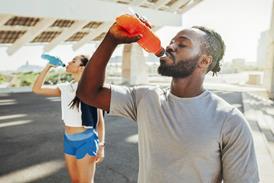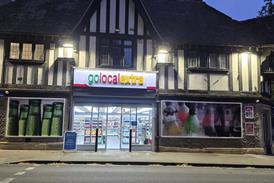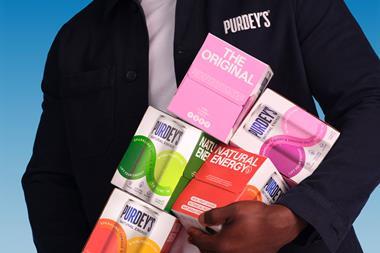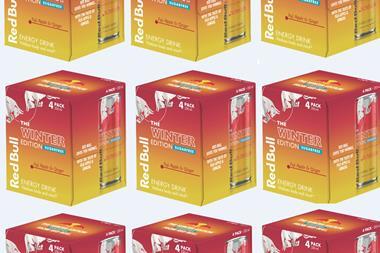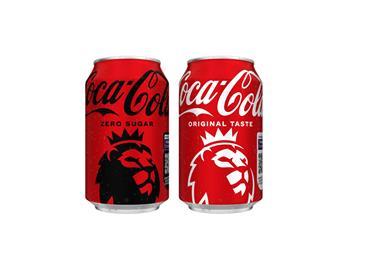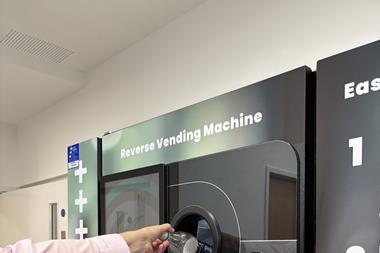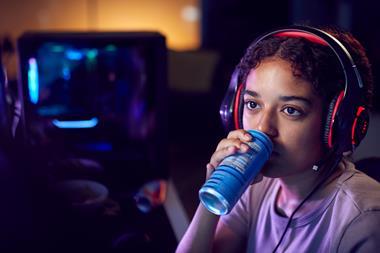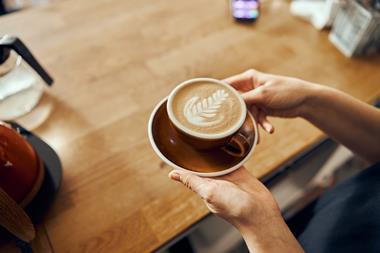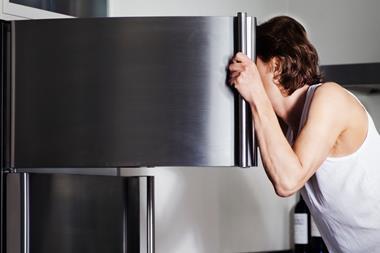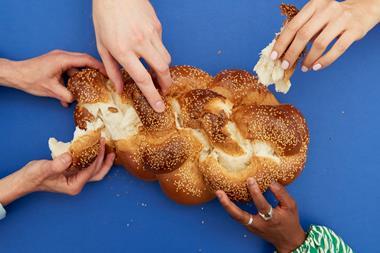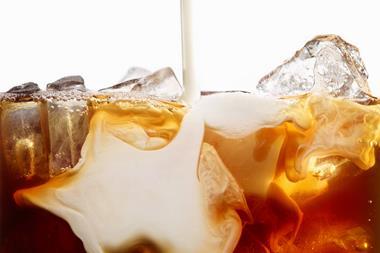With so many consumers paying close attention to health, exercise and wellness, it’s hardly surprising that the sports and energy drink market continues to be one of the real winners for retailers, with the subcategory worth £2.5bn (and growing) last year
With so much to play for, all eyes are on the latest developments in the field. Because Red Bull and key competitor Monster Energy have 60.6% of the sector sewn up, disruptor brands frequently enter the scene hoping to muscle in on the market – at times enjoying stellar success.
Against this backdrop, keeping pace with emerging trends is a must for retailers and suppliers alike – not least given the implicitly energetic nature of the sector.
Here’s the lowdown.
1. Sugar? What sugar?
2. Beware energetic politicians
3. Flavour innovation
4. Location, location, location, and possibly location again
5. Trends and innovations
1. Sugar? What sugar?
Sports drinks occupy something of a contradictory position: while targeted at consumers who are focussed on exercise, they sit within the soft drinks category, which has been reliant on sugar – long known for the health issues it can cause when consumed in excess – since carbonated lemonade was invented in the early 19th century.
Yet this contradiction is not as insoluble as it might seem, because before fizzy drinks became established, soft drinks were often marketed to health-conscious customers – meaning the focus the sector has on this area today is arguably a return to its roots.
Research from Appinio indicates that 75% of shoppers think about their health when choosing any soft drink, and while replacing natural sugars with artificial sweeteners is an established precedent in the sector, the sports and energy sub-category has really taken this practice to heart.
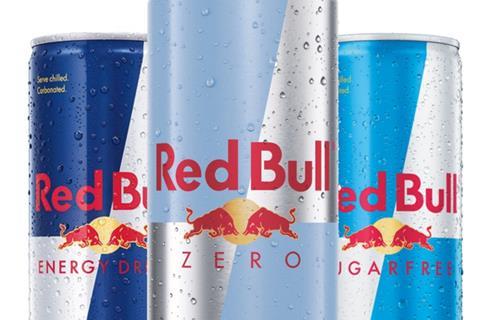
Research carried out by Kantar and shared by Red Bull shows that 37% of energy-drink customers have bought both full-sugar and zero-sugar options in the last year, something embraced by the market leader as it offers not one, but two core sugar-free options – Red Bull Sugarfree and Red Bull Zero, with the latter designed to replicate with greater fidelity the flavour the full-fat version offers.
Key rival Monster takes a similar view, with Helen Kerr, associate director of commercial development at Coca-Cola Europacific Partners GB, saying that Monster is “already driving the growth of the zero-sugar energy segment”, with the brand’s zero-sugar Ultra range experiencing an 18% rise in value sales year-on-year, and being worth £210m, with Monster Ultra White the number-one zero sugar energy drink in value sales across Great Britain.
2. Beware energetic politicians
Some sports drinks fall foul of HFSS (high fat, sugar and salt) rules, which dictate where they can be placed in store and if they can be included in promotions such as multibuys.
Not so Lucozade Sport, whose owners Suntory Beverage and Food have ensured the linchpin drink meets HFSS legislation. Suntory also launched Lucozade Sport Ice Kick earlier in the year with support of footballer Jude Bellingham, while previously partnering with Anthony Joshua to promote a special edition of Lucozade Alert Zero Sugar Mango Peachade.
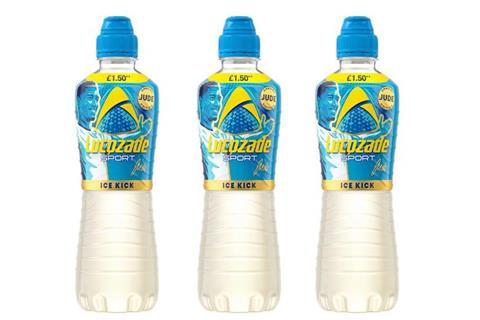
Louisa Newlove, Suntory’s head of wholesale, RTM and field sales GB&I tells us that the sports segment grew volume by 11% from mid-July to mid-August, with this being led “by strong double-digit growth in Lucozade Sport”.
It’s not just sugar, salt and fat that Westminster has in its sights however, with the Health Secretary recently announcing plans to ban the sale of drinks containing more than 150mg of caffeine per litre to people under 16 – a move that would dramatically impact energy.
While many retailers are already cautious about the ages of people who buy these drinks, soon every shopkeeper across the land will have to take this approach.
As and when legislation arrives, retailers can expect pushback from younger customers, with the Association of Convenience Stores welcoming the proposals, but warning that “it is essential that the government effectively communicates the details of the ban to consumers to avoid the risk of confrontation in stores”.
A consultation on the matter is open until 26 November 2026 so details are still sketchy, but while it’s unlikely retailers will need a third licence to nestle amongst their permits to sell alcohol, and tobacco products, given how HFSS rules work, it’s possible that in addition to age restrictions, promotions and deals will be under the spotlight.
3. Flavour innovation
As with all other food and drinks categories, a core focus for sports and energy is flavour, with research from Kantar indicating this is the number one sales driver.
No wonder, then, that as well as broadening their sugar-free offerings, firms in the category are also consistently branching out into new and unexplored flavour arenas. After all, if shoppers in this category have energetic lifestyles, it stands to reason that they may take a similarly adventurous approach to their palates.
New entrants to be aware of include Red Bull Winter Edition, with the taste of Fuji apple and ginger, available from October in both standard and sugar-free guise.
Rockstar Energy Blood Orange Zero Sugar is another limited-edition flavour in the segment, being offered in 330ml £1 price-marked cans to target “non-traditional energy drinkers with a more accessible option”.
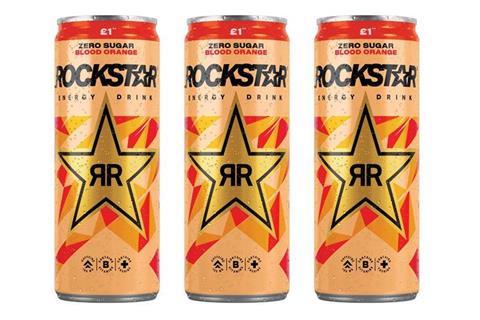
Swedish drink Nocco is a lightly carbonated energy drink aimed at “anyone dedicated to hard work and improvement”. It features zero sugar, added vitamins, caffeine, and branched-chain amino acid (BCAA), intended to help build muscle through protein synthesis. A Berry Rhubarb flavour is new to the UK and available in 330ml cans.
4. Location, location, location, and possibly location again
Dual siting products is a longstanding tactic in retail and convenience, and with a third of soft-drinks sales unplanned, giving shoppers more than one chance to be tempted by these products is something of a no-brainer.
Factor in data from Nielsen indicating that sports and energy account for 51% of single-serve soft drinks value sales in the impulse sector, and the opportunities are almost endless, with triple or even quad siting worth considering: people on long trips; on their way to and from the gym or football; those travelling at night, or simply customers wanting a perk-giving accompaniment for their lunch – the profile for sports and energy drinks consumers is as broad as the product range.
“Start by getting the right amount of space per category”, a Red Bull spokesperson told us, highlighting that given their sales volumes, sports and energy drinks “should make up 51% of the space on the fixture – so take a look”.
The spokesperson added that retailers should take “a 360 approach to visibility”, siting the drinks in the main chiller at eye level as a starter for 10. They added, though, that with a third of soft-drinks sales being unplanned, other locations to consider include “on entry to the store, at the food-to-go fixture, or at the till point”, as well as including them with meal deals.
5. Trends and innovations
The buzz that dominated the 2022 launch of Prime by YouTubers KSI and Logan Paul may have died down now, but given at its peak it sold £55.7m in 2023 alone, there’s huge potential for disruptor brands.
Ghost Energy is one such contender, with the new entrant launching in the UK last month after achieving sales worth £586m in the US. Sold via World of Sweets and with an RRP of £2.25 for a 500ml bottle, Ghost is targeting the youth contingent with eye-catching, vibrant branding. Four flavours are offered: Blue Raspberry, Cherry Limeade, Original, and Sour Warheads Watermelon.
Another new entrant comes from footballer Lionel Messi, whose new hydration drink Más+ is for the moment offered exclusively through Spar. With vibrant branding and four Latin-inspired flavours – Limon Lime League, Berry Copa Crush, Orange d’or and Miami Punch –Más+ is offered in 500ml bottles with an RRP of £2.50.
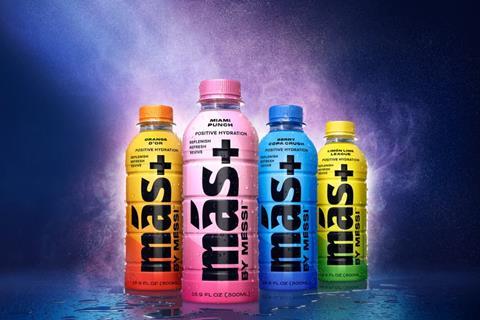
Purdey’s may have been sold in the UK since 1992, but the Britvic-owned brand relaunched in September with new flavours, fresh branding, and a focus on natural energy. Berry & Dragon Fruit, Orange & Mango, and a reformulated version of Apple & Grape are all available in 330ml cans, with an RRP of £1.85.


